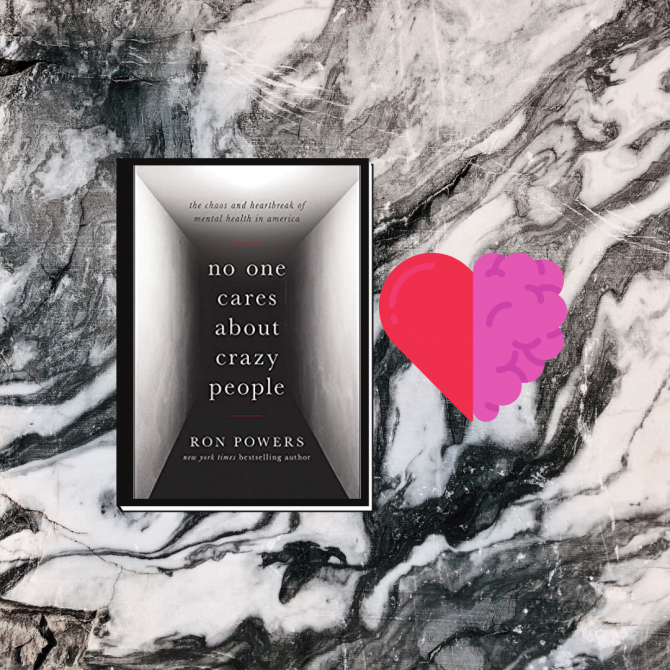 Name someone who hasn’t been touched by mental health issues, whether it’s yourself, a loved one, a friend, or colleague. Hard to do, isn’t it? According to NAMI, the National Alliance on Mental Illness, one in five adults experiences mental illness each year. Yet the stigma surrounding it is real. Why are we okay with telling people about physical ailments like a sprained ankle, but we can’t admit we’re hurting from something less tangible?
Name someone who hasn’t been touched by mental health issues, whether it’s yourself, a loved one, a friend, or colleague. Hard to do, isn’t it? According to NAMI, the National Alliance on Mental Illness, one in five adults experiences mental illness each year. Yet the stigma surrounding it is real. Why are we okay with telling people about physical ailments like a sprained ankle, but we can’t admit we’re hurting from something less tangible?
The more we can bring mental health issues into the light and learn all we can, the better we can support each other and ourselves. Here are some recommended books to get you started.
(Don't) Call Me Crazy edited by Kelly Jensen
This anthology, appropriate for grades 7 through adult, features a personal collection, from a variety of authors, that inspires discussion about the misconceptions and stigma around mental health. Contributors explore a wide range of topics, including obsessive-compulsive disorder and anxiety; dispel myths about depression and suicide; and discuss how gender, sexuality, and ethnicity impact seeking treatment for mental health issues.
Broken (in the Best Possible Way) by Jenny Lawson
Known as “The Bloggess” and beloved by fans from all over, Lawson presents another collection of essays that explores her life with depression with signature hilarity and honesty. Lawson describes experiences such as how to distract herself from being stabbed by magnets while undergoing transcranial magnetic stimulation (embroidering flowery swear words) and relays her frustration in dealing with her insurance company. She posits weird questions, has a list of business ideas she wants to pitch to Shark Tank, and tells us how she was attacked by three bears. Lawson’s long-suffering husband Victor is present throughout. Lawson shows that our weird and broken bits are something to be celebrated, not just dealt with.
The Art of Taking It Easy by Dr. Brian King
Psychologist and comedian King uses humor to explore the science behind stress. Metaphors such as bear encounters and being stuck in traffic effectively describe the body’s responses to stress, which is basically a reaction to a perception of threat. King provides simple information on reframing thoughts to reduce stress and easy tips on how to make that happen through breathing exercises and practicing gratitude daily.
How to Be Fine by Jolenta Greenberg and Kristen Meinzer
They tried them all, so you don’t have to. Based on the premise of their podcast “By the Book,” Greenberg and Meinzer immersed themselves in a range of self-help books from diet and productivity to decorating and social interactions. Started as a joke, the pair discovered that following each book’s advice has actually helped. In a humorous combination of memoir and handbook, the authors discussed what worked and what didn’t, from decluttering to meditating.
No One Cares About Crazy People by Ron Powers
In this engrossing social and personal history of mental illness, Pulitzer Prize-winning journalist Powers traces the dark story of mental health care. His meticulous research details horrific abuse at Bedlam Asylum seven centuries ago, tales of social engineers during World War II who twisted Darwin’s “survival of the fittest” to fit their own agenda, and the antipsychiatry movement spearheaded by L. Ron Hubbard. Powers’ investigative journey started when both of his sons were diagnosed with schizophrenia, illuminating the struggle of modern families to help their loved ones without proper policies or support, and driving him to answer the question “How did we, as a society, get to this point?”
Set Boundaries, Find Peace by Nedra Glover Tawwab
Licensed therapist and relationship expert Tawwab has been featured in The New York Times, The Guardian, and Psychology Today and has appeared in numerous podcasts such as “Therapy for Black Girls” and “Do the Thing.” She runs a popular Instagram account where she shares reflections to boost mental health and hosts weekly Q&As about relationships and boundaries. Tawwab explains what healthy boundaries really are and teaches us how to express our needs, say “no,” and be assertive. By doing so, we achieve greater work/life balance, improve our relationships, and are able to deal with toxic people.
The Collected Schizophrenias by Esmé Weijun Wang
The overachieving daughter of Taiwanese immigrants, Wang was diagnosed with schizoaffective disorder eight years after she first started experiencing hallucinations. Wang’s descriptions of her experiences, combined with pop culture references such as The Exorcist, bring to life what it feels like to lose one’s mind (and be hospitalized against one’s will). In this moving memoir, Wang also describes the stigma of mental illness, especially in her culture, and how the news perpetuates the stigma by only showing people with schizophrenia who have committed mass shootings or other acts of violence.
Join Central Rappahannock Regional Library staff from 7:00-8:00 p.m. Wednesday, May 19, for a virtual discussion of Don’t Call Me Crazy, edited by Kelly Jensen.
If you or someone you know needs helps now, you should immediately call the National Suicide Prevention Lifeline at 1-800-273-8255 or call 911.
Tracy McPeck is the adult services coordinator at Central Rappahannock Regional Library. This column first appeared in the Free Lance-Star newspaper.

